Fundamental rights survey
Different visualisation tools
This interactive tool offers different ways to explore the data behind the survey results. There are four main visualisation options: Map, Bar chart, Country detail and Country comparison, as well as a Data table option that shows the data for the selected visualisation.
EMap
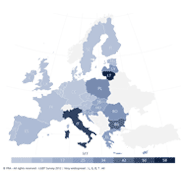
The map visualisation presents an overview of the results for EU-28 as well as North Macedonia and Serbia.
Bar chart
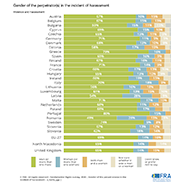
The EU bar chart visualisation illustrates the results for all EU Member States, North Macedonia, Serbia and the EU-28 average as a vertical stacked bar chart.
Country detail
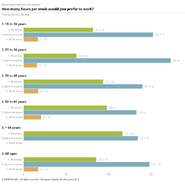
The country detail visualisation presents the values for all answer categories for the selected country, survey question and subset of respondents. The horizontal bar charts include the EU-28 average.
Country comparison
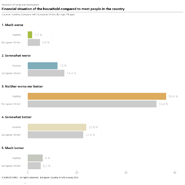
The country comparison visualisation presents a comparative overview of the results for two selected countries. Country results can also be compared with the EU-28 average across answer categories
Data table
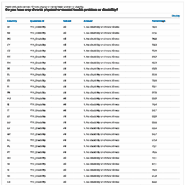
The data table presents the data of the selected visualisation in a numerical format.
How to explore the data
The survey questions are divided into six topics and each topic has a number of questions. Choose a topic, then a question from the drop-down list in the grey box. You can also apply additional filters. You can also change the visualisation using the list of options on the right hand side of the chart or map.
How to export the data
The export options can be accessed via the Export button. To export the visualisation as an image, choose one of Figure (PNG), FSVG (High resolution), EPS (High resolution) or PDF (High resolution). To export the data for the selected visualisation in Microsoft Excel format, choose XLSX. To generate a Page URL or Embeddable HTML choose the corresponding option.
The Fundamental Rights Survey is the first survey to collect comprehensive and comparable data on people’s experiences and views of their rights in the EU-27. The survey included questions related to rights in a number of different areas, including crime victimisation and safety, data protection and privacy, functioning of the democracy, views on human rights and experiences with public services.
The survey collected data in 29 countries: 27 EU Member States, the United Kingdom (an EU Member State at the time of the survey interviews) and North Macedonia (the only non-EU country with observer status at FRA when the survey was designed). In each country, a representative sample of respondents – ranging from about 1,000 in most countries to about 3,000 in France and Germany – participated in the survey. The survey interviews, which took place between January and October 2019, resulted in a total sample of 34,948 respondents.
The results are representative at the EU level, as well as for each country, of people who are 16 years old or older and usually reside in the country where they took part in the survey.
Information concerning the technical implementation is available in Annex II of the report What do fundamental rights mean for people in the EU?. The dedicated Technical Report will provide further details concerning survey development, fieldwork implementation and outcomes (forthcoming in 2021).
The FRA data visualization tool is designed to work in all modern browsers such as Google Chrome, Apple Safari, Mozilla's Firefox and Microsoft Edge. If you are using an old browser such Internet Explorer 11 or earlier, we recommend that you either upgrade to Edge or use instead the latest version of one of the other browsers listed above.
Accessibility
We are committed to making this site as accessible as possible for all users, including those with disabilities. For more details, please see our accessibility section.